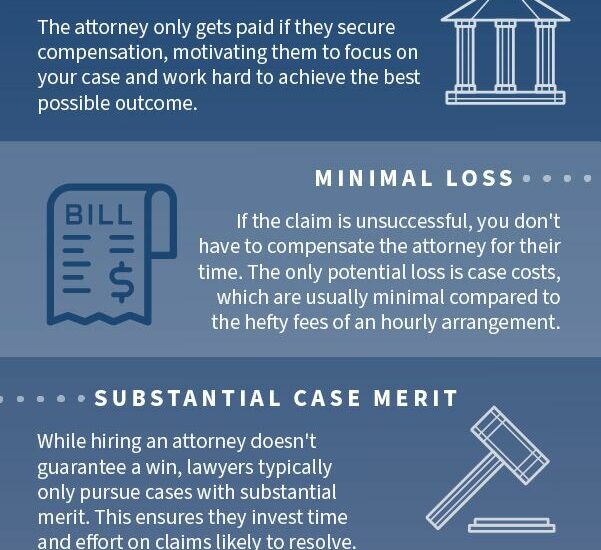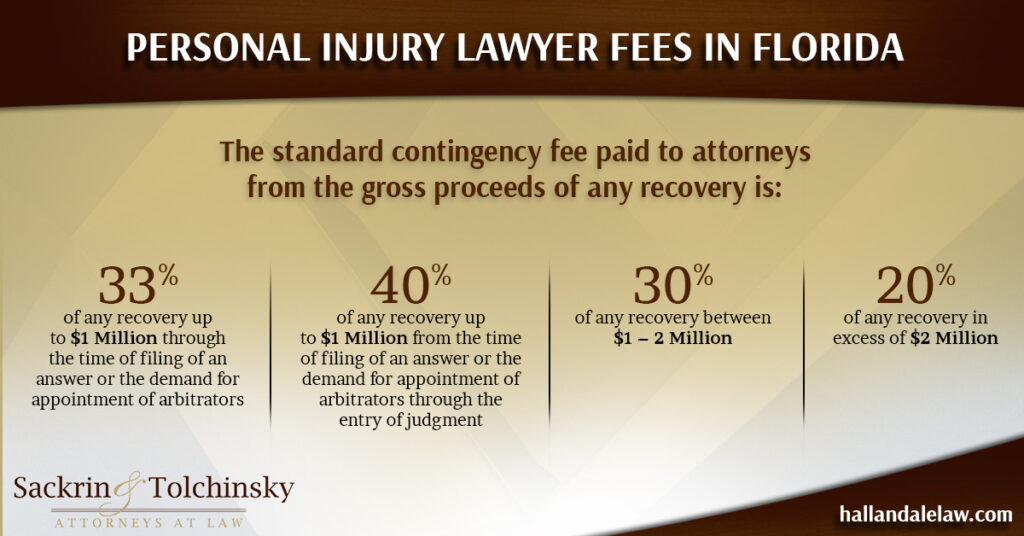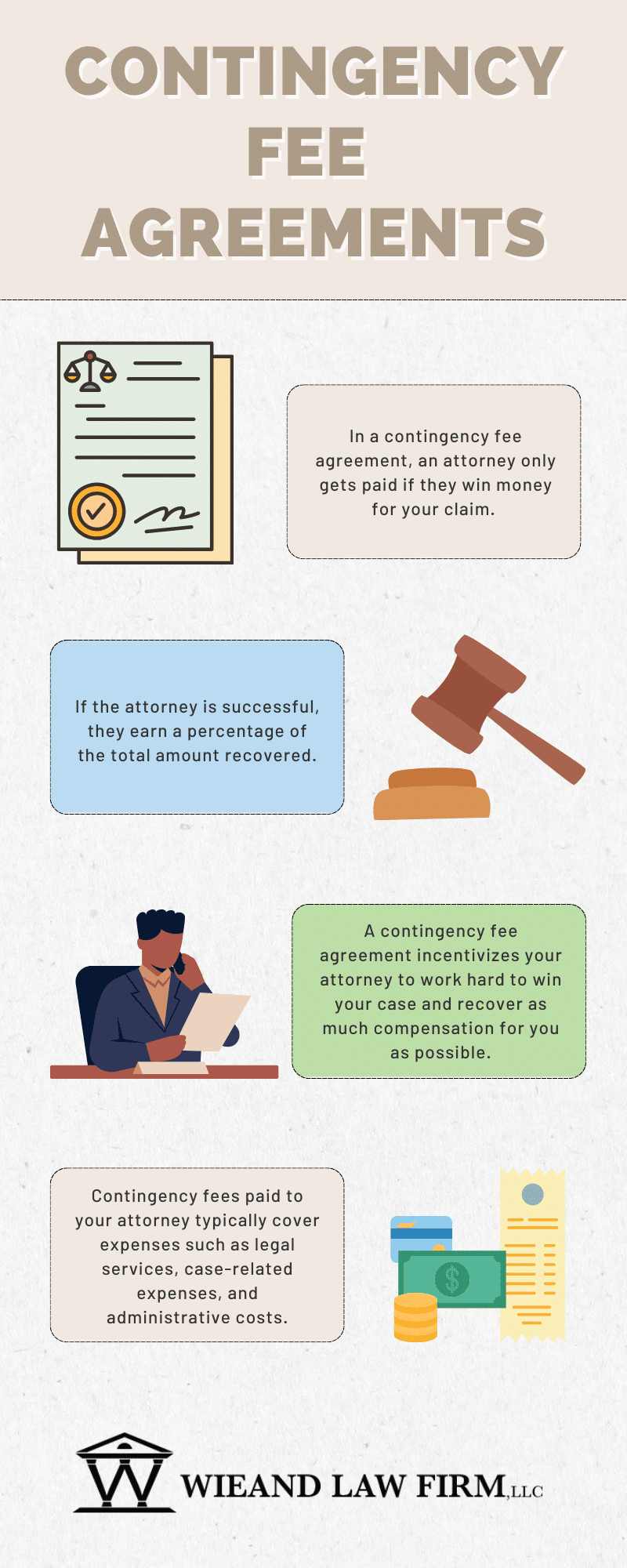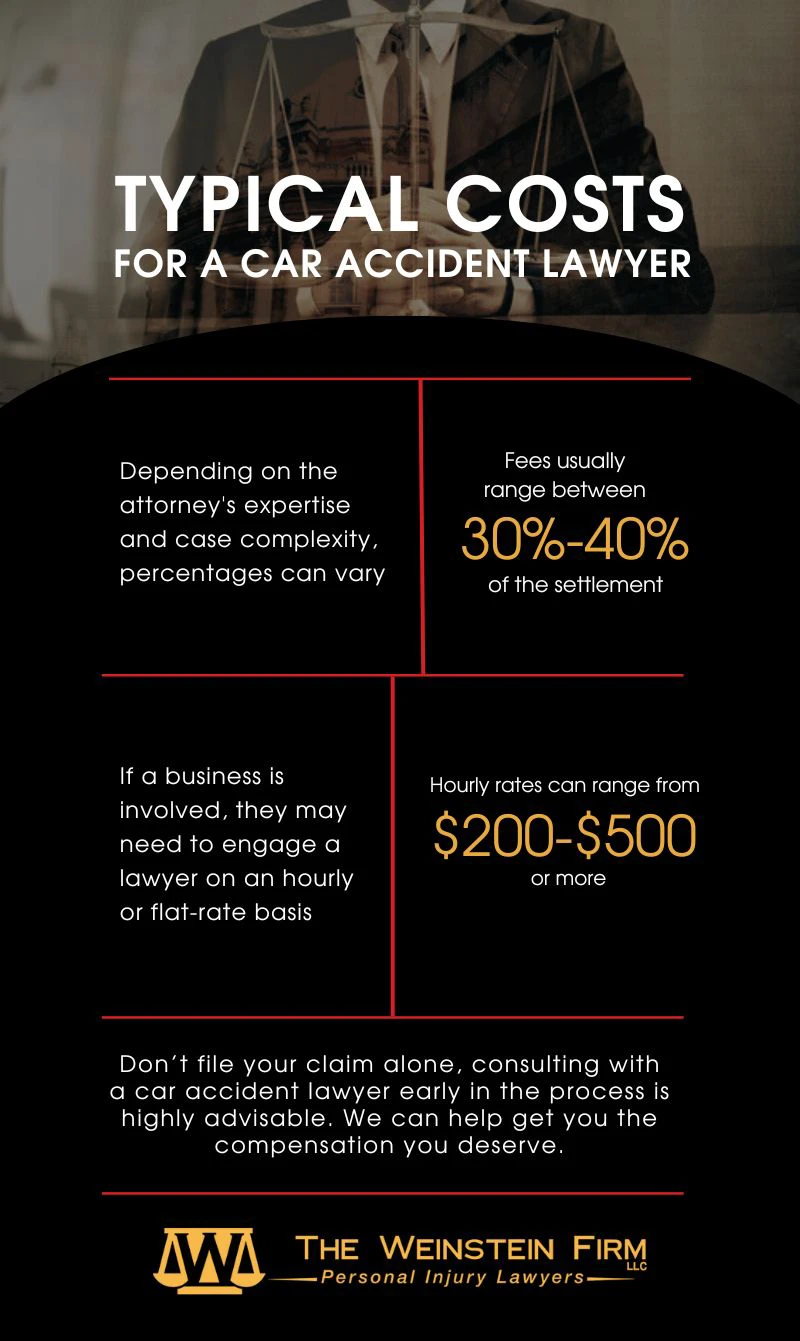
Accident Case Lawyer Fees: What You Need to Know
Understanding accident case lawyer fees is crucial. It helps manage expectations and finances.
Legal fees can vary widely based on several factors. Knowing what to expect can save you stress and surprise costs. Whether you’re dealing with a car accident, a slip and fall, or another type of personal injury, legal representation is often necessary.
But how much will it cost? And what do these fees include? This blog will break down the different types of fees you might encounter. It will also explain what services these fees cover and how they are calculated. By the end, you will have a clearer picture of what to expect and how to plan for these expenses. Stay informed and prepared as you navigate your legal journey.

Credit: www.hallandalelaw.com
Introduction To Accident Lawyer Fees
Hiring an accident lawyer can be a crucial step. Understanding the fees involved can help you make informed decisions. This section will explain why fees matter and the common fee structures.
Why Fees Matter
Lawyer fees can impact your financial situation. Being aware of the costs can help you plan better. You should know what you are paying for.
Fees cover various services. These include consultations, paperwork, and courtroom representation. Knowing the costs helps you evaluate if the services are worth it.
Common Fee Structures
Accident lawyers use different fee structures. Here are some common ones:
- Hourly Rate: You pay for each hour the lawyer works on your case.
- Flat Fee: A single payment for all services. This is agreed upon before the case begins.
- Contingency Fee: You only pay if you win the case. The fee is a percentage of the settlement.
Each fee structure has its pros and cons. Let’s look at them in detail:
| Fee Structure | Pros | Cons |
|---|---|---|
| Hourly Rate | Pay for the exact time spent on your case. | Costs can add up quickly. |
| Flat Fee | Know the total cost upfront. | Might be expensive for complex cases. |
| Contingency Fee | No win, no pay. | Percentage of your settlement goes to the lawyer. |
Contingency Fees
One of the key concerns for anyone seeking legal representation in an accident case is the cost. This is where contingency fees come into play. Contingency fees provide a way for clients to access legal help without upfront costs. Instead of paying an hourly rate or a flat fee, the lawyer gets paid only if the case is won.
How Contingency Fees Work
With contingency fees, the lawyer’s payment depends on the case outcome. Typically, the lawyer receives a percentage of the settlement or award.
- The percentage varies but is often around 33%.
- If the case is lost, the client pays no legal fees.
- Clients might still be responsible for certain costs like court fees and expert witness fees.
This fee structure aligns the lawyer’s interests with the client’s goal of achieving a favorable outcome.
Advantages And Disadvantages
Advantages:
- Clients can get legal help without upfront payment.
- Lawyers are motivated to win since their payment depends on it.
- Reduces financial risk for clients.
Disadvantages:
- Clients may end up paying a large percentage of their compensation.
- Some lawyers might not take cases they deem less likely to win.
- Additional costs like court fees might still be the client’s responsibility.
Understanding the pros and cons of contingency fees can help clients make informed decisions about hiring a lawyer.
Hourly Rates
Understanding hourly rates for accident case lawyers is vital. This fee structure is common but often misunderstood. Let’s dive deeper into this topic to uncover the details.
When Hourly Rates Apply
Hourly rates are used in specific situations. Here are some common scenarios:
- Complex cases with uncertain outcomes
- Cases requiring extensive research and preparation
- Matters involving multiple parties or jurisdictions
Lawyers charge for every hour they work on your case. This includes meetings, phone calls, and document preparation.
Pros And Cons
Hourly rates have both benefits and drawbacks. Let’s explore them:
| Pros | Cons |
|---|---|
|
|
Consider these factors before choosing a lawyer. Weigh the pros and cons to decide what’s best for your situation.
Flat Fees
When dealing with accident case lawyers, understanding their fee structure is crucial. One popular fee arrangement is the flat fee. This means the lawyer charges a single, fixed amount for their services. This can be helpful in avoiding surprises and budgeting for legal expenses.
Flat Fee Scenarios
Flat fees are often used in straightforward cases. These can include minor car accidents or cases where liability is clear. In such scenarios, the lawyer knows how much time and effort the case will take.
Flat fees are also common in initial consultations. This helps clients get advice without a large commitment. It’s a way to ensure both parties understand the case’s potential.
Benefits And Drawbacks
One major benefit of flat fees is predictability. Clients know upfront what they will pay. This can reduce stress and help with financial planning.
Flat fees can also save money. If a case is resolved quickly, the client doesn’t pay more for additional hours.
However, there are drawbacks. In complex cases, flat fees may not cover all the work needed. Lawyers might limit their efforts to stay within the fee.
This can impact the quality of the representation. It is important to discuss all details and ensure the flat fee arrangement covers all aspects of the case.
Retainer Fees
Understanding the fees associated with hiring a lawyer can be daunting. One common fee structure in accident cases is the retainer fee. This article will delve into what retainer fees are and how they are used in accident cases. Knowing this information can help you make informed decisions about your legal representation.
Definition Of Retainer Fees
A retainer fee is an upfront cost paid to a lawyer. This fee secures their services for your case. Think of it as a down payment for legal help. The lawyer deducts their hourly rate or other fees from this amount. Retainer fees ensure that the lawyer is available to work on your case.
Usage In Accident Cases
In accident cases, retainer fees can cover initial consultations. They also cover any preliminary work needed for your case. This might include gathering evidence or talking to witnesses. Retainer fees help manage the costs of legal services. They can also show that you are serious about pursuing your case. This upfront payment gives the lawyer the resources to start working without delay.
Additional Costs
Hiring an accident case lawyer involves several costs beyond their fees. These additional expenses can add up quickly. Understanding these costs helps in planning your budget better. Below are some common additional costs you may encounter.
Court Fees
Court fees are a significant part of the expenses. These fees cover various administrative costs. Filing a lawsuit often requires an initial fee. There may also be costs for motions and other court-related activities. These fees vary by location and complexity of the case.
Expert Witness Fees
Expert witnesses are crucial for many accident cases. They provide specialized knowledge. Their testimony can strengthen your case. However, expert witnesses charge for their time. This includes preparation, travel, and actual testimony. These fees can be substantial, especially for high-profile experts.
Negotiating Fees
Negotiating fees with an accident case lawyer can be challenging. It’s essential to know how to approach this topic to get the best value. Here are some tips and what to avoid during the negotiation process.
Tips For Negotiating
- Do your research: Before negotiating, understand the standard fee rates. This helps in making informed decisions.
- Ask for a breakdown: Request a detailed list of services included in the fee. This ensures transparency.
- Be clear about your budget: Let the lawyer know your financial limits. This can help in finding a feasible solution.
- Consider a contingency fee: Some lawyers work on a contingency basis. They get paid only if you win the case.
What To Avoid
- Don’t rush the process: Take your time to understand the fee structure. Rushing can lead to misunderstandings.
- Avoid hidden fees: Ask about any additional costs not included in the initial quote. This prevents surprises later.
- Don’t be afraid to negotiate: It’s okay to ask for a better deal. Lawyers expect clients to negotiate.
- Avoid settling for the first offer: Compare fees from different lawyers. This ensures you get the best value.
Negotiating fees with your accident case lawyer can be straightforward. Follow these tips and be aware of potential pitfalls. This approach helps ensure a fair deal and good service.

Credit: www.wieandlaw.com
Choosing The Right Lawyer
Choosing the right lawyer for an accident case is crucial. You need someone who understands your needs and can represent you effectively. Finding a lawyer with the right experience and fees can be challenging. This section will help you with factors to consider and questions to ask.
Factors To Consider
- Experience: How many years has the lawyer been practicing?
- Specialization: Does the lawyer specialize in accident cases?
- Reputation: What do past clients say about the lawyer?
- Fees: How does the lawyer charge? Is it a flat fee or hourly rate?
- Communication: Is the lawyer easy to reach? Do they respond quickly?
Questions To Ask
- How many accident cases have you handled? This shows their experience.
- What are your fees? Understand if it’s a flat fee or hourly rate.
- What is your success rate? Know how often they win cases.
- How do you communicate with clients? Ensure they keep you informed.
- Do you offer a free consultation? This helps you gauge if they’re a fit.
Choosing the right lawyer requires careful consideration. By focusing on these factors and asking these questions, you can find a lawyer who meets your needs and budget.

Credit: weinsteinwin.com
Frequently Asked Questions
What Are Typical Accident Lawyer Fees?
Accident lawyer fees vary. They typically charge a contingency fee. This means they take a percentage of your settlement.
Do Accident Lawyers Offer Free Consultations?
Yes, most accident lawyers offer free initial consultations. This helps them evaluate your case and determine next steps.
How Is A Contingency Fee Calculated?
A contingency fee is a percentage of your settlement. Usually, it ranges from 25% to 40%, depending on the case.
Are There Additional Costs Besides Lawyer Fees?
Yes, there can be additional costs. These may include court fees, expert witness fees, and other legal expenses.
Conclusion
Understanding accident case lawyer fees is crucial for making informed decisions. Costs vary based on experience and case complexity. Transparent discussions with your lawyer help avoid surprises. Always ask about payment structures and additional charges. This ensures you’re fully aware of potential expenses.
Choose a lawyer who offers clear, upfront communication. This helps build trust and confidence. Remember, the right lawyer can make a significant difference in your case’s outcome. Make your choice wisely and prioritize your needs.

Leave a Reply